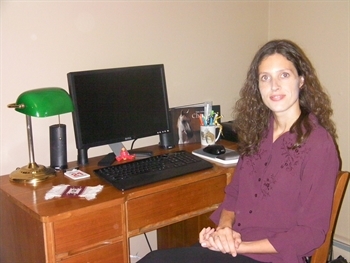Educators
 Broadband Benefits and Connectivity Issues from an Educator's Standpoint
Broadband Benefits and Connectivity Issues from an Educator's Standpoint
Online education is not a novelty. In the United States, almost 20% of all higher education students in the fall of 2007 were taking at least one online course, and that number keeps growing (Susan Ko & Steve Rossen, "Teaching Online, A Practical Guide", 3rd Edition, published in 2010). Taking classes online has many advantages for students: they can be located in Texas and take an animal nutrition class from a renown professor teaching in Colorado, or they can even be located in China and take an ESL course through any university in the United States. The possibilities are endless. Teaching and learning online eliminates the traditional constraints encountered in a conventional classroom (such as commuting time, lack of space or technology tools in classrooms, schedule conflicts, etc) and it offers more freedom for students and instructors.
Learning online is especially useful for students located in educationally underserved areas, who want to pursue specialized or advanced degrees that are not available through their local colleges and universities. By the same token, teaching online is useful for instructors located in areas where there are not many colleges and universities offering courses in the instructor's field. That is the reason why I got involved with the Clark County Broadband Team. I am a French native speaker and French instructor who moved to rural Clark County in 2009 and I have been offered the possibility to teach a French 101 online class through a local university, but I could not find an Internet Service Provider that meets my needs, and I would like to change that situation. Teaching (and learning) online requires a fast and reliable broadband internet connection with no lag time, which enables instructors and students to meet in virtual classrooms in real time (such as Elluminate). So far, I have not been able to find an internet service provider that can supply an internet connection good enough to meet those needs in our rural area of Clark County, south of Martinsville.
Cable connections are not available outside of city limits where we live. DSL connections are not available through our local phone service provider Fairpoint for our area. In 2009, Fairpoint decided to stop providing DSL services to new customers in our area because of the amount of customer complaints they have received over the past few years, due to the connection being too slow and the phone lines being too old to be able to fully support DSL connections.
Since cable and DSL were not available, I subscribed to a Hughes Net Satellite Broadband Connection. The download speeds and upload speeds are comparable to a DSL connection, however our broadband connection through Hughes Net was often interrupted in case of bad weather and also did not support VOIP. We also discovered after we installed the satellite dish that satellite broadband connections have an 8 to 10 seconds lag time, which makes it very difficult to connect to a virtual classroom in real time.
So we finally switched our satellite connection to a wireless broadband connection through Verizon Wireless. Wireless broadband connections through phone providers also provide download and upload speeds comparable to a DSL connection, without the lag time that the satellite broadband connections have. This type of connection is also not interrupted in case of bad weather and it enables me to use VOIP and to connect to a virtual classroom in real time. It sounds like the perfect solution, right? Well it would be perfect if we didn't live seven miles from the closest Verizon Wireless tower. Towers emit a strong signal three or four miles around them, but living seven miles away from the tower, our signal is very weak and the internet connection is often interrupted. So my temporary fix was to purchase a Wilson wireless signal booster with a directional antenna to strengthen the signal in my office. The booster works well on some days, and not so well on others, so I still often loose calls on Skype and get disconnected from my virtual classroom while the class is in session.
I have a dream that one day all Americans will be able to get on their computer from their home office, no matter where they are located, and that all students and instructors will be able to take and teach classes online. Good broadband internet connections are crucial to be able to deliver world-class education in rural communities.
Florence